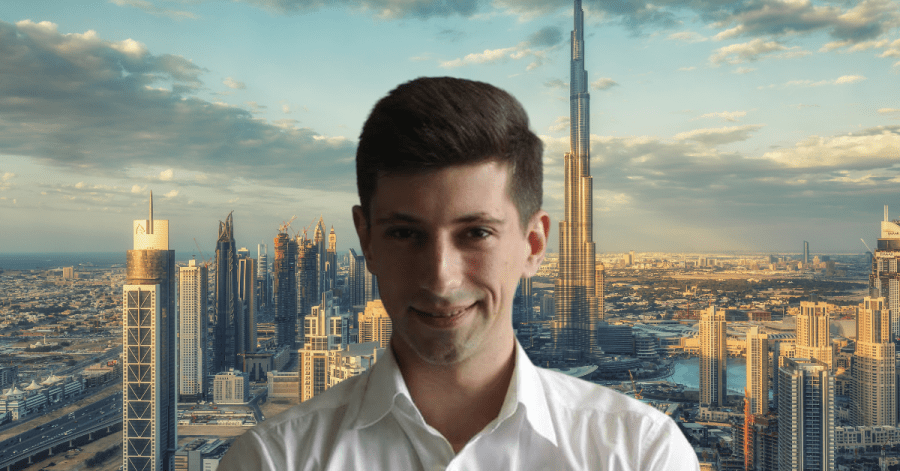The United Arab Emirates (UAE) has been gaining attention from startups and investors across the globe, and for good reason. Since 2016, the UAE has been putting a strong emphasis on entrepreneurship, aiming to diversify its economy away from oil production.
Today, the rate of entrepreneurial activity in the country is steadily increasing. According to the Global Entrepreneurship Monitor’s (GEM) 2022 report, the UAE has been ranked first globally as the best ecosystem for startups and entrepreneurs. This puts the country ahead of nations like the Netherlands, Finland, Saudi Arabia, and Lithuania.
“The Middle East is already a startup and digital nomad hotspot, but to succeed, it’s essential to have local contacts and to tailor your products and services to local preferences. In Dubai, for example, products and services aimed at consumers are expected to be luxurious. That is why companies, especially in the B2C segment should think about ways to make their offering more premium to meet the expectations of local customers,” Boris Pavlov, Founder and CEO of the Bulgarian proptech startup FlatAway which is currently in the process of setting up a new team in Dubai.
Flataway is a platform that caters to digital nomads searching for extended stay options. The properties available for rent are short-term rentals and there is one essential difference from Airbnb. Flataway’s local franchise partners professionally manage all properties, and the company equips them with the entire software stack required for property management to help grow their business locally. Currently, there are six Flat Managers operating in Bulgaria, one in Romania, and soon one in Dubai.
“Our connection with Dubai goes back a long way. One of my close friends from Dubai was the first investor in our company. We chose to expand in Dubai because of our strong ties with the local people and the fact that Dubai is developing in two significant directions. Firstly, tourism has always been the backbone of the economy, and there is a high demand for short-term rentals. Secondly, the return on investment in Dubai properties is high, averaging around 7-10%. Dubai has a significant expat population, and many people work remotely, making it an attractive market for proptech companies like ours looking to expand globally,” Boris explains.
Some of the benefits of having an office in the UAE, include incentives for small businesses, no corporate taxes on the gained profits for legal entities, and no income taxation for business owners and companies employees. Let’s see why more and more CEE proptech founders are turning their eyes toward the Middle East.
Startup-friendly policies
Dubai, one of the seven emirates that make up the UAE, has launched an initiative called the Innovation Attraction Program (ABRA). The program is aimed at attracting innovative startups from overseas to help build the city into an international hub for disruptive technologies. The program offers incentives such as access to funding, enhanced market access, and ‘soft landing’ services for those establishing a presence in the emirate. Officially launched in February 2020, the IAP focuses on companies operating in six main industry sectors: aerospace, transport and mobility, energy efficiency, education, medical and health, and information and communications technology.
Those accepted by the program are offered three main service products: a ‘soft landing’ for those establishing operations in the region, enhanced market access support in the region, and opportunities for sourcing funding. These services are delivered through access to the IAP’s network of partners, which includes SME enablers and facilitators from 15 nations, including Singapore, Japan, and Germany. The IAP also collaborates with local partners drawn from the public and private sectors, which can offer member startups support in areas such as market access, proof of concept, funding, and mentorship.
In 2021, the UAE introduced a new law allowing 100% foreign ownership of companies according to which foreigners opening a company in the emirates no longer need an Emirati shareholder in order to start operating. The new law allows all foreigners to own up to 100% of any business which is registered in designated business parks known as “free zones”.
Sharjah Media City (SHAMS), Sharjah Research Technology and Innovation Park (SRTIP), Meydan Free Zone, Ras Al Khaimah Economic Zone (RAKEZ), and International Free Zone Authority (IFZA) are just a few examples of free zones that offer some of the most cost-effective free zone licenses in the UAE.
“Establishing a new business or expanding in Dubai without local support could be challenging. The local culture is not as open as in the US, and there are nuances to be mindful of, such as renting a luxurious office space that aligns with the local business culture,” Boris from Flataway says. “The team responsible for launching Flat Manager in Dubai is in the process of registering the local company and recruiting a general manager to establish and run the business. After Dubai, our next destination for expansion is Saudi Arabia. Recently, the country has permitted Airbnb and Booking.com to operate there, and they are increasingly investing in tourism to diversify beyond oil revenue,” he shares.
Golden Visa for attracting entrepreneurs
The UAE Golden Visa program, launched in 2019, is designed to attract and retain professionals, investors, entrepreneurs, and outstanding students from all over the world. The program allows investors and entrepreneurs to live in the country for five or ten years with a renewable residence permit.
Golden visa holders can live, work, and study in the country for the entirety of their visa, with or without gaining local or other employment. The program also offers tax benefits and no property purchase restrictions.
High demand for offices and rentals in Dubai
The mix of startup friendly policies and programs for attracting foreign talent and entrepreneurs has helped Dubai emerge as a focal point for expat entrepreneurs. The UAE’sstartup ecosystem has over 350,000 small and medium enterprises contributing to almost 40% of Dubai’s GDP and employing over 40% of the workforce.
What this means is that all of these expat founders, nomad workers, and local entrepreneurs are raising the demand for office spaces, housing, and rentals.
Besides FlatAway, some other CEE-born proptech startups that have already expanded into the UAE include Blueground, the Greek premium furnished rental apartments service that offers short-term rentals, and the Romanian startup for flexible proximity offices Nooka Space.
Having started operations in Greece, Blueground entered the Dubai market in 2016. “Specifically, on the demand side, Dubai is an important business hub with a large number of expats and visiting business professionals. On the supply side, Dubai’s developed real estate market, and advanced regulatory framework around residential property rentals was also a big plus for our decision to enter the market,” Alexandros Chatzieleftheriou, co-founder and CEO of Blueground, has said in previous interviews.







